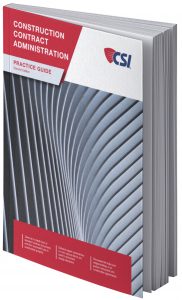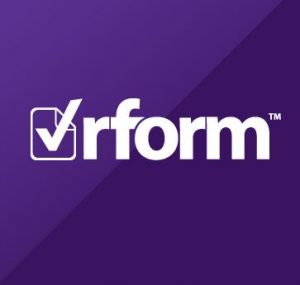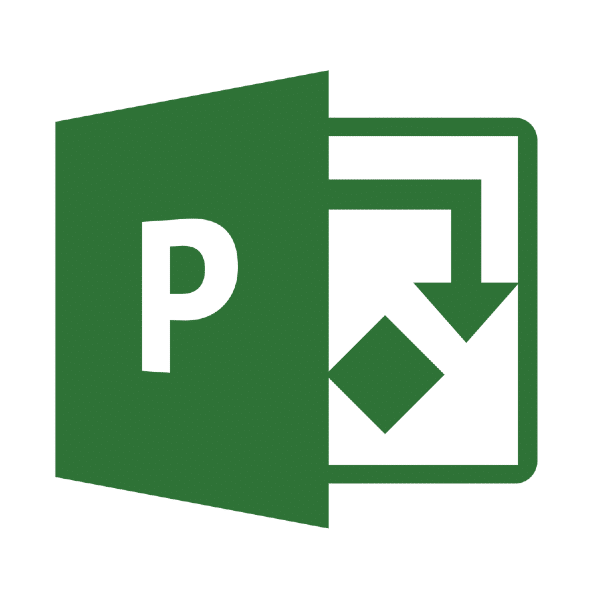Addressing the Unique Challenges of Civil Engineering Projects
Civil engineering and architectural projects are renowned for their complexity. From intricate designs and extensive documentation to stringent regulatory compliance and multi-disciplinary collaboration, these projects demand meticulous management of the construction process and the contractual obligations that bind it. RForm can complement a civil engineering firm’s existing Project Management software by providing specialized tools for contract administration. This integrated approach can improve efficiency, collaboration, risk mitigation, and successful project outcomes
Complexities of Multi-disciplinary Collaboration: Civil engineering projects often involve various disciplines, such as structural, geotechnical, environmental, and transportation engineering. RForm’s centralized platform can facilitate seamless communication and document sharing across these disciplines, ensuring everyone is on the same page.
Extensive Documentation and Submittals: Civil projects generate a massive amount of documentation, including plans, specifications, permits, and submittals. RForm’s document management and submittal tracking features can help organize and streamline this process, ensuring timely reviews and approvals.
Field-Heavy Operations: Civil projects often involve extensive fieldwork, making real-time communication and data collection crucial. RForm’s mobile capabilities and site report features can enable efficient field data capture and communication with the office, improving project oversight and decision-making.
Potential for Change Orders and Claims: Civil projects are prone to change orders and claims due to unforeseen site conditions or design changes. RForm’s change order management and RFI features can help track and document these changes, facilitating agreement between parties and minimizing disputes.
The Value Proposition for a Civil Engineering Firm
- Improved Efficiency and Productivity: By automating and streamlining contract administration processes, RForm can free up valuable time for engineers and project managers to focus on core project activities, increasing productivity.
- Enhanced Collaboration and Communication: The platform’s centralized document repository and communication tools can foster better collaboration among team members and stakeholders, improving project coordination and decision-making.
- Reduced Risks and Disputes: By ensuring compliance with contract requirements, facilitating timely communication, and providing a transparent platform for managing changes, RForm can help minimize the potential for costly disputes and delays.
- Data-Driven Insights: RForm’s features for tracking project data, such as schedules, costs, and submittals, can provide valuable insights for project managers to monitor progress, identify trends, and make informed decisions.
- Enhanced Client Satisfaction: Civil engineering firms can improve client satisfaction and build stronger relationships by demonstrating professionalism, transparency, and efficient project management.

Not utilizing robust contract administration software alongside your project management software can expose your projects to various risks that can impact project outcomes, timelines, and budgets.
1. Inefficient Document Management and Communication
- Risk: The image of a construction site with multiple cranes and structures underscores the complexity of civil engineering projects, which often involve many documents like plans, specifications, submittals, RFIs, and change orders. Without dedicated contract administration software, managing and tracking these documents can become chaotic, leading to miscommunication, delays, and errors.
- Impact: Misplaced or outdated documents can cause rework, schedule disruptions, and stakeholder disputes. The Construction Specifications Institute (CSI) emphasizes the importance of version control and timely communication, which can be challenging without a robust system.
2. Delays in Submittals and RFIs
- Risk: The flowcharts in the CSI’s practice guide illustrate the submittal and RFI processes, highlighting the multiple steps and stakeholders involved. Without a dedicated system to track and manage these processes, there’s a risk of delays in reviews and approvals, which could impact project timelines.
- Impact: Delays in submittals can lead to material shortages, work stoppages, and schedule overruns. Unresolved RFIs can cause confusion and errors in the field, leading to rework and additional costs.
3. Increased Risk of Disputes and Claims
- Risk: The CSI dedicates an entire domain to claims and disputes, underscoring their potential impact on projects. Without a clear and transparent system for managing change orders, tracking correspondence, and documenting decisions, the risk of disputes and claims increases significantly.
- Impact: Disputes can lead to costly litigation, project delays, and strained stakeholder relationships. The image of a person reviewing a document on a tablet could represent someone trying to resolve a dispute by sifting through disorganized project records, a time-consuming and frustrating process.
4. Compromised Quality Control
- Risk: The CSI emphasizes the importance of quality assurance and control throughout the project lifecycle. Without a system to track inspections, tests, and non-conforming work, quality issues will likely slip through the cracks.
- Impact: Quality problems can lead to rework, delays, and increased costs. In the worst-case scenario, they can compromise the safety and integrity of the structure, as tragically illustrated by the image of the collapsed bridge.
5. Inefficient Payment Processes
- Risk: The CSI highlights the importance of timely and accurate payments to maintain project cash flow and avoid disputes. Without a dedicated system to manage the schedule of values, track progress, and certify payments, there’s a risk of payment delays and disagreements.
- Impact: Payment delays can strain relationships with subcontractors and suppliers, potentially leading to work stoppages or even liens on the project.
6. Missed Opportunities for Improvement
- Risk: The CSI advocates for project feedback and lessons learned to improve future projects. With a system to capture and analyze project data, valuable insights may be recovered.
- Impact: Missed opportunities for improvement can lead to repeated mistakes, inefficiencies, and suboptimal project outcomes.
In conclusion, relying solely on Project Management software without a robust Contract Administration solution like RForm can expose civil engineering firms to significant risks. RForm can complement a civil engineering firm’s existing Project Management software by providing specialized tools for contract administration. This integrated approach can improve efficiency, collaboration, risk mitigation, and successful project outcomes, timelines, budgets, and stakeholder relationships. By integrating dedicated contract administration software, firms can streamline processes, improve communication, mitigate risks, and achieve greater project success.
Here’s how a contract administrator can leverage the synergy between the Construction Specifications Institute, RForm, and Project Management software to present a compelling case for adoption by a multi-disciplinary civil engineering firm.
The Construction Specifications Institute’s guiding principles, RForm, offer digital tools, and Project Management software acts as the orchestrator, forming a comprehensive solution for successful project delivery. RForm platform’s document management, communication, and collaboration capabilities complement the six domains of the Construction Contract Administration Practice Guide published by the Construction Specifications Institute by facilitating efficient information sharing, promoting transparency, and streamlining project workflows.
The Six Domains:
- Project Records
- Project Initiation
- Quality Assurance and Quality Control
- Site Visits and Observations
- Claims and Disputes
- Project Closeout

The Synergy of RForm with the Six Domains
1. Project Records:
- Project Files and Document Management: This feature directly addresses the need for organized and accessible project documentation, a core requirement of Domain 1. It provides a centralized platform for storing and retrieving contracts, submittals, RFIs, change orders, and other critical records, ensuring all stakeholders can access the latest information.

2. Project Initiation
- Submittals and Transmittals: This feature streamlines the submittal process, which is crucial during project initiation (Domain 2). It allows for efficient tracking of submittals, ensuring timely reviews and approvals, and minimizing delays.
- Schedule of Values and Certificates for Payment: This feature supports the financial aspects of project initiation, ensuring that payment processes are established and transparent from the outset. Certifying Payments is easier with the unit pricing Schedule of Values integrated with Certification for Payment forms.
3. Quality Assurance and Quality Control
- Submittals and Transmittals: By facilitating the submittal review process, this feature contributes to quality assurance by ensuring that materials and workmanship comply with contract requirements.
- RFIs: This feature supports quality control by providing a mechanism for clarifying any ambiguities or discrepancies in the contract documents, thus preventing errors and rework.
- Supplemental Instructions (SI) are issued to direct the contractor to enhance project quality without affecting the contract price or time.
- Site Reports: This enables documentation of site inspections and observations, contributing to quality control efforts.
4. Site Visits and Observations Site Reports:
- Site Reports: This feature directly supports Domain 4 by enabling efficient documentation of site visits and observations. It includes functionalities for recording observations, taking photos, generating reports, and facilitating communication between field personnel and the office.

5. Claims and Disputes
- RFIs: This feature can help prevent disputes from arising in the first place by providing a formal process for addressing questions and clarifications.
- Changes and Cash Allowances: This feature supports the management of contract modifications, often a source of claims and disputes. It provides tools for tracking and documenting changes, ensuring transparency and facilitating agreement between the parties.
- Certificate for Payment authenticates and tracks payments corresponding to completed tasks and stored materials, ensuring precise financial tracking.
6. Project Closeout
- Punch Lists: This feature could streamline the punch list process, allowing for efficient tracking and documentation of incomplete or deficient items and ensuring timely completion.
- Schedule of Values and Certificates for Payment: This feature supports the final payment process, ensuring that all work is accounted for and the contractor appropriately paid.
- Submittals and Transmittals: This feature helps ensure that all required closeout submittals, such as O&M manuals and warranties, are received and properly documented.
The Triad of Project Success: CPS, RForm, and Project Management
Understanding the Construction Specifications Institute’s Role: The Construction Specifications Institute is the knowledge repository outlining the best practices and contractual obligations in construction contract administration. It’s the go-to resource for understanding the intricacies of submittals, RFIs, change orders, payments, and project closeouts. Think of it as the project’s rulebook, ensuring compliance and minimizing disputes.
RForm: Bridging the Gap: While the Construction Specifications Institute provides the theoretical framework, RForm steps in as the practical enabler, its features directly address the key challenges of contract administration, offering a digital platform to streamline and automate critical processes.
- Submittals and Transmittals: This feature digitizes the submittal process, allowing for efficient tracking, review, and approval of documents. This minimizes delays and ensures that materials and workmanship comply with contract requirements.
- RFIs: The RFI feature provides a structured platform for submitting, tracking, and resolving questions and clarifications, promoting clear communication and preventing misunderstandings. This aligns with the Construction Specifications Institute’s emphasis on timely and effective communication.
- Changes and Cash Allowances: This feature enables transparent management of contract modifications, including change orders and cash allowances. It helps track changes, document approvals, and adjust project budgets accordingly, minimizing the potential for disputes.
- Project Files and Document Management: This feature is a centralized repository for all project-related documents, ensuring easy access and version control. It supports the Construction Specifications Institute’s emphasis on meticulous documentation and record-keeping.
- Schedule of Values and Certificates for Payment: This feature streamlines the payment process, ensuring transparency and alignment with project progress. It supports the Construction Specifications Institute’s guidelines on measurement and payment, promoting timely and accurate payments to contractors and subcontractors.
- Supplemental Instructions: This feature allows for additional guidance and directives as the project evolves, accommodating unforeseen circumstances and ensuring clarity in project execution.
- Site Reports: Site report functionality is crucial for documenting field observations and inspections, contributing to quality control and progress monitoring.
Project Management Software: The Orchestrator: Project management software serves as the central nervous system of the project, coordinating all activities and resources. It provides planning, scheduling, resource allocation, and cost control tools, ensuring the project is executed efficiently and effectively.
RForm’s features seamlessly integrate with project management software, providing real-time data on contract administration processes. This allows project managers to:
- Track Progress and Identify Risks: Monitor submittal and RFI statuses, change order impacts, and payment schedules to identify potential risks and delays proactively.
- Make Informed Decisions: Access real-time data on contract administration to make informed decisions regarding resource allocation, scheduling adjustments, and risk mitigation strategies.
- Enhance Communication and Collaboration: Share information and collaborate with stakeholders through RForm’s platform, promoting transparency and alignment with project goals.
The Holistic Solution: By integrating RForm with their existing project management software, civil engineering firms can achieve a more holistic approach to project delivery. The Construction Specifications Institute provides the knowledge, RForm provides the tools, and Project Management software provides the strategic oversight. This synergy leads to:
- Improved Efficiency and Productivity: Streamlined processes and automated workflows save time and reduce errors, allowing teams to focus on core project activities.
- Enhanced Collaboration and Communication: Centralized document management and communication tools foster better collaboration and decision-making.
- Reduced Risks and Disputes: Transparent contract administration and proactive issue resolution minimize the potential for costly disputes.
- Data-Driven Insights: Real-time data on contract administration supports informed decision-making and proactive risk management.
- Successful Project Outcomes: By ensuring compliance, mitigating risks, and promoting collaboration, this integrated approach increases the likelihood of delivering projects on time, within budget, and to the satisfaction of all stakeholders.
In the complex world of civil engineering, where projects are often large-scale and multi-disciplinary, integrating RForm with project management software is a luxury and necessary for achieving successful project outcomes.
Streamlined Construction Contract Administration with RForm – Your efficient Contract Admin Tool
See RForm Pricing – – – – – Schedule A Demo
RForm’s contract administration features can enhance the capabilities of leading project management software used in civil engineering. By integrating RForm with their existing project management software, civil engineering firms can achieve a more holistic approach t o project delivery, ensuring compliance, mitigating risks, and ultimately delivering successful project outcomes.
- Centralizing and Streamlining Document Management: Providing a single source of truth for all contract-related documents, improving accessibility and version control.
- Automating Workflows and Approvals: Facilitating efficient submittal and RFI processes, reducing delays and improving communication.
- Enhancing Financial Transparency: Managing change orders, cash allowances, and payment certifications, ensuring clarity and minimizing disputes.
- Promoting Collaboration: Enabling real-time communication and information sharing among stakeholders, fostering a collaborative project environment.
RForm Enhances Contract Administration in Microsoft Project for Civil Engineering & Architectural Firms
While Microsoft Project has long been a staple for project scheduling and task management, it often falls short in addressing the specific needs of contract administration. This is where RForm steps in, offering a suite of features that seamlessly integrate with Microsoft Project to provide a holistic solution for project delivery.
The Limitations of Microsoft Project in Contract Administration: Microsoft Project excels at planning, scheduling, and resource allocation, providing powerful tools to visualize project timelines and track progress. However, its capabilities in managing a project’s contractual and legal aspects are limited.
- Document Control: While Microsoft Project allows for attaching documents to tasks, it lacks the robust document management features required for contract administration, such as version control, transmittal tracking, and centralized storage.
- Communication and Collaboration: Although it offers basic communication features, Microsoft Project may not provide the structured workflows and real-time collaboration needed for efficient submittal reviews, RFI management, and change order processing.
- Financial Management: While it can track project costs, Microsoft Project may not have the specialized tools for managing the schedule of values, certifying payments, and tracking change order costs, which are crucial for contract administration.
How RForm Complements Microsoft Project: RForm bridges the gap between project management and contract administration, offering features that seamlessly integrate with Microsoft Project to provide a comprehensive solution.
- Submittals and Transmittals: RForm’s submittal tracking feature automates the submittal workflow, ensuring timely reviews and approvals and minimizing delays. This complements Microsoft Project’s scheduling capabilities by providing real-time visibility into the submittal process and its impact on project timelines.
- RFIs: The RFI management feature facilitates clear communication and issue resolution, reducing the risk of errors and disputes. This aligns with Microsoft Project’s communication tools, providing a structured platform for managing project-related questions and clarifications.
- Changes and Cash Allowances: RForm’s change order management feature tracks and documents contract modifications, ensuring transparency and facilitating agreement between parties. This complements Microsoft Project’s cost-tracking capabilities by providing a clear record of change order costs and their impact on the project budget.
- Project Files and Document Management: RForm’s centralized document repository provides a single source of truth for all project-related documents, improving accessibility and version control. This enhances Microsoft Project’s document attachment feature by offering a more robust and organized system for managing project records.
- Schedule of Values and Certificates for Payment: This feature streamlines the payment process, ensuring that payments are aligned with project progress and contract requirements. It complements Microsoft Project’s cost tracking by providing a detailed breakdown of the project’s value and facilitating accurate payment certifications.
The Benefits of Integration -By integrating RForm with Microsoft Project, civil engineering and architectural firms can:
- Improve Efficiency and Productivity: Streamline contract administration processes, reduce manual tasks, and save time for core project activities.
- Enhance Collaboration and Communication: Facilitate real-time information sharing and collaboration among stakeholders, improving project coordination and decision-making.
- Mitigate Risks and Disputes: Ensure compliance with contract requirements, track changes transparently, and resolve issues proactively, minimizing the potential for costly disputes.
- Gain Data-Driven Insights: Access real-time data on contract administration processes to monitor progress, identify trends, and make informed decisions.
- Deliver Successful Project Outcomes: By combining the power of project management with robust contract administration tools, firms can achieve greater control, transparency, and efficiency, leading to successful project outcomes that meet the needs of all stakeholders


Conclusion: Effective contract administration is critical for civil engineering and architecture success, where projects are often large-scale, multi-disciplinary, and subject to stringent regulations. While Microsoft Project is a valuable tool for project management, it may not fully address the specific needs of contract administration. By integrating RForm with Microsoft Project, firms can bridge this gap, creating a holistic solution that supports project execution and contract management, ultimately leading to improved project outcomes and increased client satisfaction.
…we have reduced the time and person power spent on paperwork management and nearly eliminated the possibility of errors due to use of outdated or incorrect information.

No limits on project size, number of project team members or data storage.
